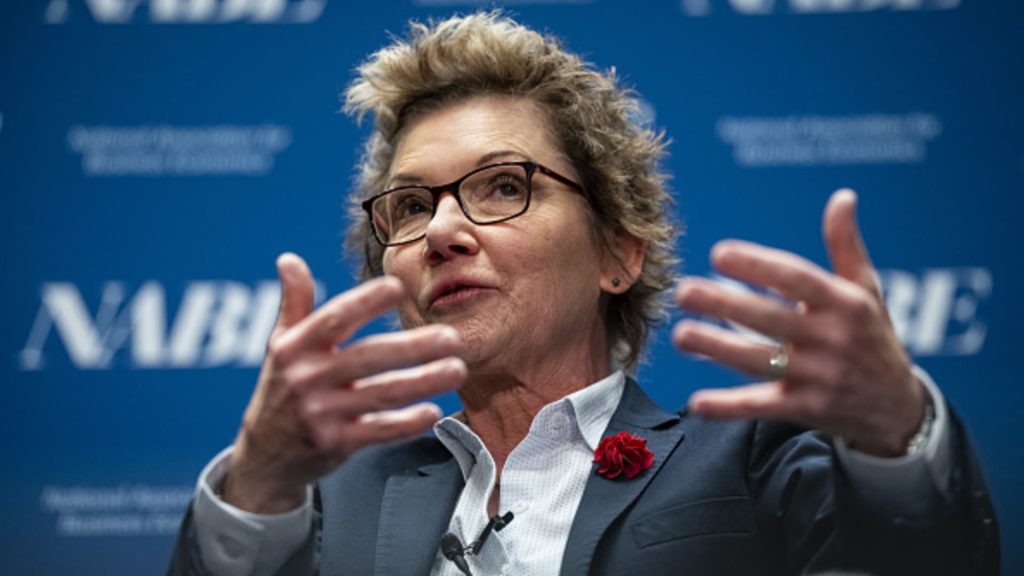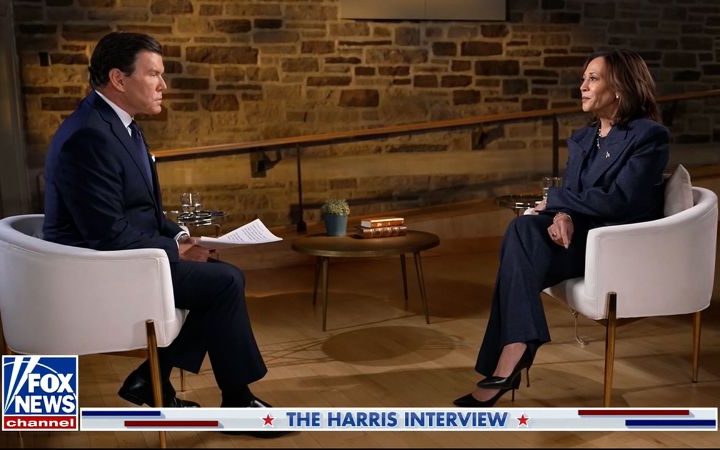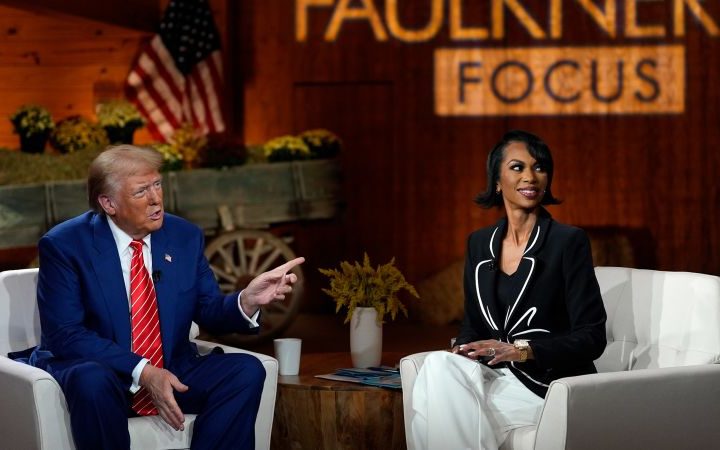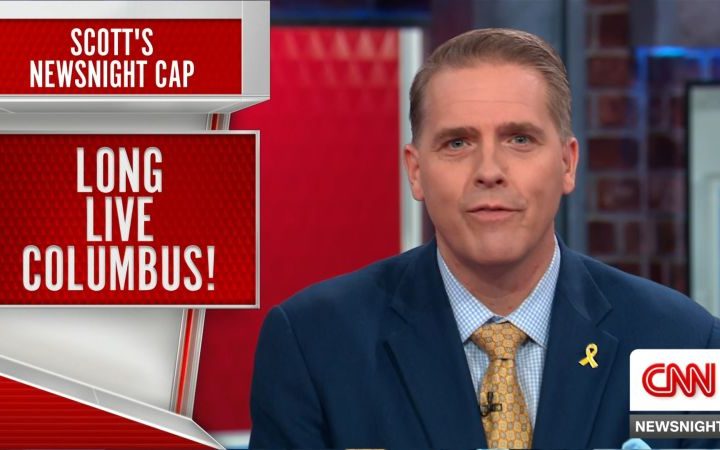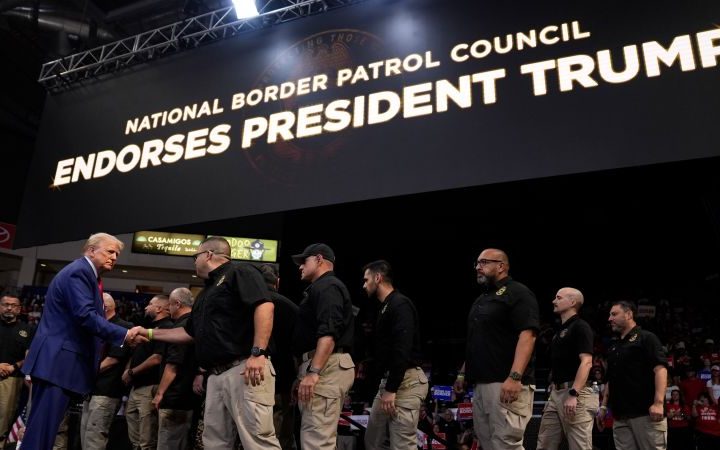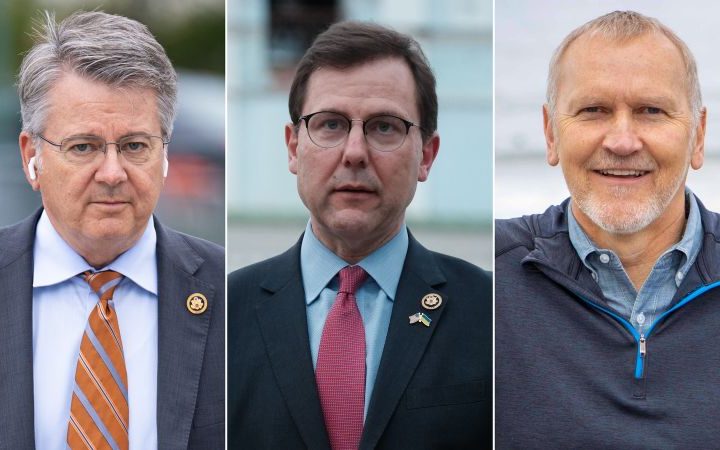Tim Walz was in the midst of his interview with Vice President Kamala Harris’ vetting team when he told them there was something important they needed to know.
He doesn’t use a teleprompter, the Minnesota governor said. He doesn’t even have one, in fact. So if he was the pick, Walz said, Harris’ team would have to get him a teleprompter and teach him how to use it.
It was a lighter moment, but it was also part of an interview process with Harris’ team that Walz aced, multiple sources familiar with the meeting told CNN. The Minnesota governor was upfront about his vulnerabilities, noting he wasn’t from a swing state or a household name. He also said he was a bad debater.
But Walz made it clear he would be a team player.
Asked how he saw his role as VP, Walz said he would perform the job however Harris wanted him to. Asked if he wanted to be the last person in the room before Harris made a decision, Walz said only if she wanted him to be there.
And asked if he had ambitions to run for president himself one day, Walz said he did not, a point that sources said was not lost on a team looking to minimize the potential for any internal drama in a future Harris administration.
“He had a very clear understanding that it was to be a partner, but to support the president, go out and connect with America and be that governing partner,” said Cedric Richmond, a former Louisiana congressman and Biden White House adviser who was deeply involved in the selection process. “It’s not the easiest of positions, but it’s a very important position.”
The vetting interview was a key step for Walz to ultimately lock up the selection that Harris made after sitting down with the three finalists, including Pennsylvania Gov. Josh Shapiro and Arizona Sen. Mark Kelly, for one-on-one interviews at her residence on Sunday.
“It was a home run,” said one source familiar with Walz’s meeting with Harris’ vetting team. “Everyone loved him.”
Beyond the personal chemistry Harris and her team felt toward Walz, people familiar with the interview process said that Walz was also someone Harris felt could attract the kinds of voters that Democrats have lost to Donald Trump— voters that Harris may not be able to connect with on her own.
“He hunts, he fishes, you want to have a beer with him,” said the source familiar with Walz’s meeting. “He will play in Michigan, Wisconsin, Western Pennsylvania, Georgia, North Carolina.”
A longtime Democratic operative who has known Walz for years agreed, saying: “He talks and looks like a lot of the voters we’ve lost to Trump.”
By Tuesday, staffers at the Harris campaign headquarters were already joking about the “Blue Walz,” referencing the key midwestern battleground states that they hope he will help her lock up.
Shapiro – who was favored by some of the Democratic Party and anti-Trump Republicans as a more moderate selection – did not go over as well with Harris’ team during his vetting interview, sources familiar with the process told CNN. While Walz came across as deferential and cooperative, Shapiro struck some as overly ambitious, with “a lot of questions” about what the role of the VP would be.
And while Shapiro did “very well” in his in-person meeting with Harris on Sunday, multiple sources said, Walz was seen as a pick that would come with less drama and palace intrigue – both on the campaign trail and, if they win in November, at the White House.
“It was a striking contrast” between the two, said the source familiar with the meeting.
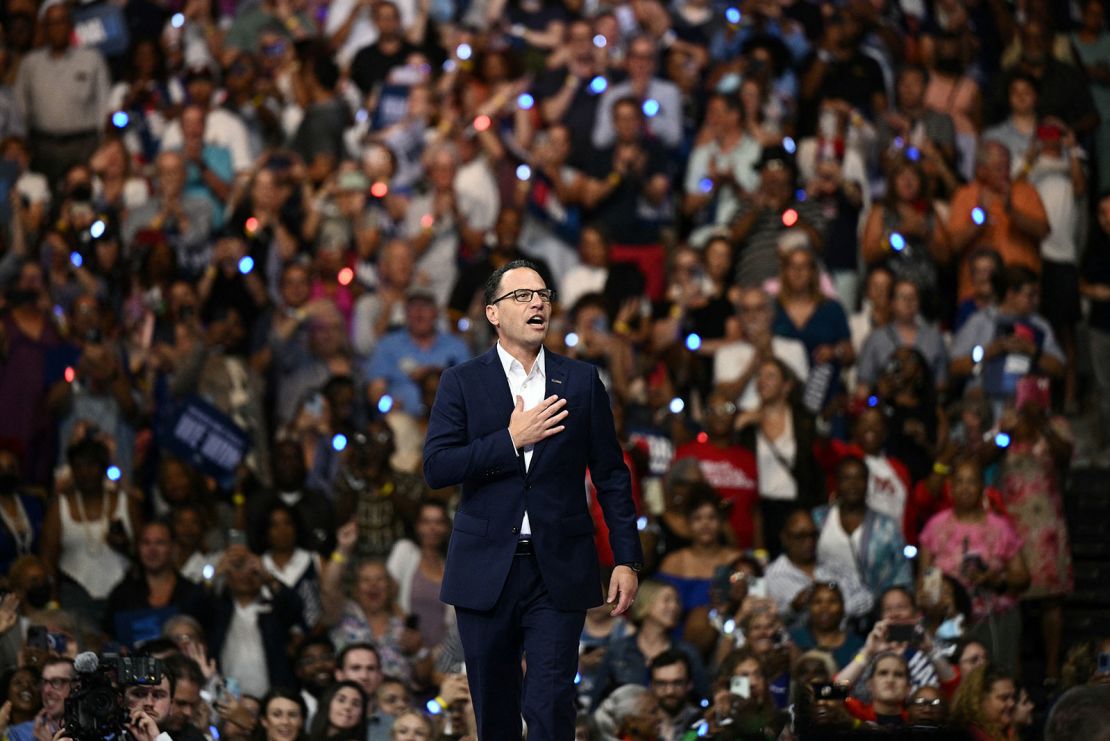
Walz was an unexpected contender to become the No. 2 on the Democratic ticket – he was hardly mentioned among the potential contenders when Joe Biden dropped out a little over two weeks ago. But sources familiar with the selection process described Walz as the walk-on player who was ultimately picked for the team over the five-star recruits because he was a Midwestern governor who can campaign as a natural on the stump as a fellow “happy warrior.”
Walz, who was a 24-year Army National Guard veteran and high school teacher before entering politics, brought a “joy and excitement” to the process that ultimately won Harris and her team over, said another source.
Walz was the running mate option that Harris knew the least — but he won over the Democratic nominee, as well as her team, by making clear he would adapt to her style and policies.
Harris had not been expecting Walz to say he didn’t plan to run for president, a source familiar with her thinking told CNN. But afterward, as she sat around the same dining room table in the Naval Observatory, Walz’s answer stuck with her.
“That showed his willingness to say, ‘Look I’m not concerned about my image or my approval rating or what’s next for me in the next chapter of life. I’m going to stay in this moment, be your vice president, run through walls, fight for the American people and demonstrate our values,’” said Richmond. “That’s a strong and compelling argument.”
‘At ease and very natural’
The elevation of Walz was the culmination of a remarkable whirlwind, a capstone to a two-week campaign to join the Democratic ticket – first, with a goal of catching the attention of the Harris team and second, to win over the vice president herself.
“He was at ease and very natural,” said a senior Democratic adviser who was briefed on Walz’s face-to-face interview with Harris. “It was a ‘know-it-when-you-see-it’ type of thing.”
While much of the attention around the vetting process focused on the work being done by former Attorney General Eric Holder and former White House counsel Dana Remus, the questions beyond the paperwork and biographical scrubs really started last Friday with video interviews for the candidates being considered.
The Zoom calls also featured an until-now secret three-person committee: Richmond, former Boston mayor and Labor Secretary Marty Walsh and Nevada Sen. Catherine Cortez Masto.
Richmond has become a top adviser to Harris. Walsh and Harris grew close during his time in the Biden administration. Cortez Masto was elected the same year to the Senate with Harris, but they’d also previously served as attorneys general together through the landmark multistate mortgage settlement that became a defining moment for both their careers in the aftermath of the 2008 financial crisis.
The three-person group was picked for geographic diversity, different skill sets and background. But most of all, they were picked because they were who Harris trusted to help figure out whom she could trust, which many who know her acknowledge is often the hardest thing for Harris.
Richmond and Walsh, who both went from being elected officials to members of Biden’s administration, were there to help answer a question very much on Harris’s mind after her own experience as vice president: “She wanted to make sure that we could ask questions like, ‘You’re going to go from a principal to a hybrid principal/staffer. Can you make that transition?’” according to one source familiar with the process.
Of the nine options vetted, and six who met virtually with the committee, Walz and Shapiro entered the rushed final weekend as the clear favorites, three people involved in the process told CNN. Kelly was included as a third option.
Walz was propelled by support from across the Democratic Party – progressive and moderate factions alike – in a sophisticated campaign guided by some of the party’s most seasoned operatives. He had former House Speaker Nancy Pelosi on his side – old allies from his 12 years in Congress representing a rural Minnesota district – as well as glowing words from former President Barack Obama, who said in a statement Tuesday of Walz, “He has the values and the integrity to make us proud.”
Obama also served as a “sounding board for Vice President Harris to talk through how she was thinking about it,” said one senior aide.
As Walz gained traction online for his comment that Republicans were “weird,” Harris was watching, too.
“She likes the way he operates,” said a person involved with the process. “She liked how it became a thing then. It was funny, it was pointed, but it wasn’t over the top.”
While Harris and Walz did not have much of a previous relationship – a fact that some around Walz worried might be his downfall in the process – aides said Harris grew increasingly enthusiastic by how Walz carried himself during the process. A courtesy call between Harris and Walz on July 21, the same Sunday afternoon Biden stepped aside, sparked a formal vetting process that ultimately led him to the top of the ranks of finalists.
Along the way, many Democratic leaders believed Shapiro was the frontrunner in the sudden race to become Harris’ running mate. Extensive polling and focus groups conducted by the Harris campaign showed no nominal difference among the final contenders, but two Democratic advisers close to the search process acknowledged Shapiro, who is Jewish, had become something of a lightning rod for Gaza protests that Harris was not eager to revisit, an issue that’s divided Democrats throughout the 2024 campaign.
“Nobody wanted to rip that scab back open,” one of the Democrats said, speaking on condition of anonymity to discuss a confidential process. But other sources close to the vetting process pushed back on the notion that the Gaza protests had anything to do with Harris’ decision to pick Walz over Shapiro.
In the end, the bigger hurdle for Shapiro was his face-to-face meeting with Harris, where he posed “very specific” questions about the role of a vice president, including what decisions he would be included in making, should they win election.
“He was negotiating the job with her, while Walz was saying ‘What can I do to help?’” said the Democratic adviser, who added that Shapiro was unquestionably a rising star in the party but just didn’t meet the moment and forge a comfortable connection with Harris.
For Walz, the evolution from being seen as a moderate Democrat – winning a Republican-leaning congressional district in 2006 – to becoming a leading progressive governor impressed Harris and her team about his appeal.
Walz’s deferential style was also a huge factor in his appeal with Harris, sources said.
“She wanted to make sure that people understood there are going to be times when you’ll have great influence and there are going to be times when something’s happening and you’re told about it at the last minute,” said one of the people involved in the vetting process. “She said, ‘That’s just the nature of the job and you have to be OK with that.’”
Donuts and a teleprompter
Ahead of Harris’ three interviews on Sunday with Walz, Shapiro and Kelly, a panel of close advisers presented findings and recommendations to Harris at her residence at the Naval Observatory.
As they did, other senior campaign staff prepared videos and logos and merchandise for the various options. They waited, not knowing which way Harris would go. They wrestled with wrapping their minds around how different the options really were, and what each would mean for the campaign and for them.
According to sources familiar with the process, Harris was immediately leaning toward Walz after the Sunday meetings. But she felt torn through the end.
Harris slept on it Sunday. By Monday, she was quietly closing in on selecting Walz, informing only a small group of advisers of where her thinking stood that evening, a source familiar with the matter said. Harris went to bed Monday morning without making any official decision.
Small teams of staffers were sent to be on location for each of the final three options, none of them knowing when they woke up on Tuesday morning what the day was going to bring.
Speeches for Tuesday night’s rally in Philadelphia were written in advance for all the options.
When Harris finally called Tuesday morning, Walz was at home with his wife and two children, along with his sister and brother-in-law. He didn’t answer the first call that came through that morning because it was from a blocked number and he didn’t want to miss a call from Harris.
She got him on the second try.
Walz was handed his speech shortly after Harris called to officially tell him he was the pick. After a small family celebration, Walz brought donuts to staffers who were there with him and hopped on a call with a wider group of staff to thank them for their work.
After arriving in Philadelphia for the first joint Harris-Walz rally Tuesday, a source said that Walz practiced using the teleprompter ahead of taking the stage for his speech.
CNN’s John King, Arlette Saenz and Betsy Klein contributed to this report.
Read the full article here
